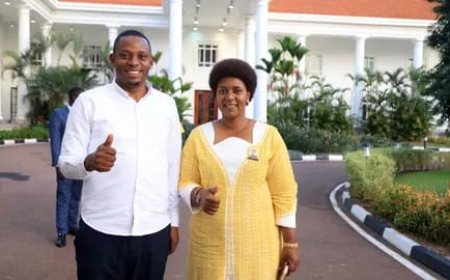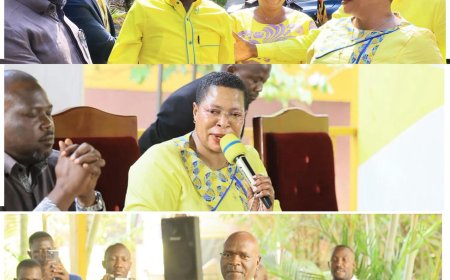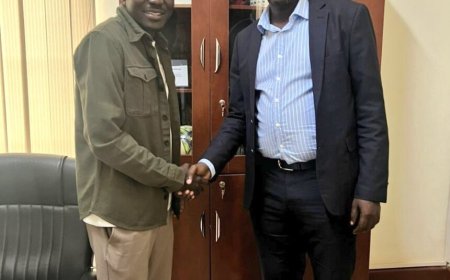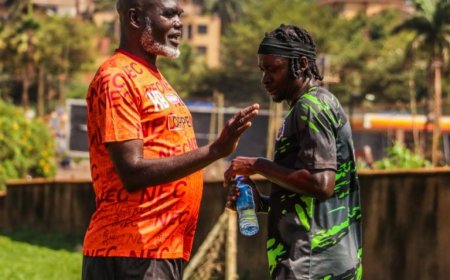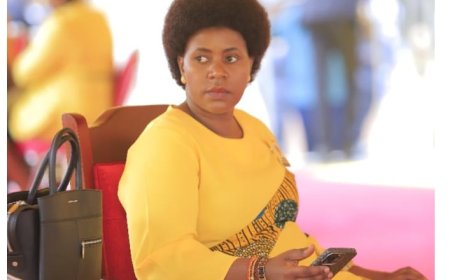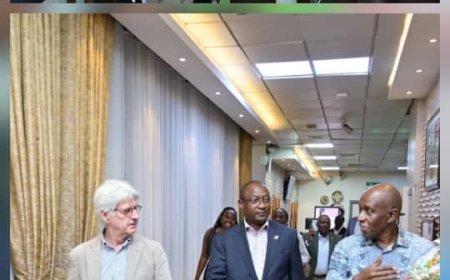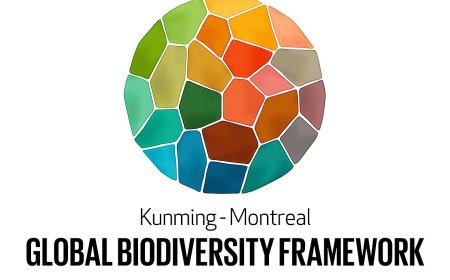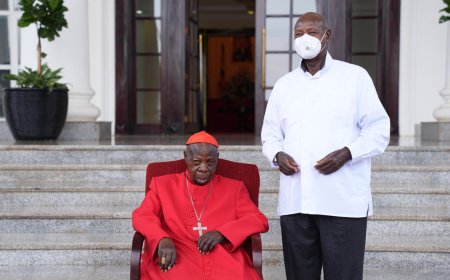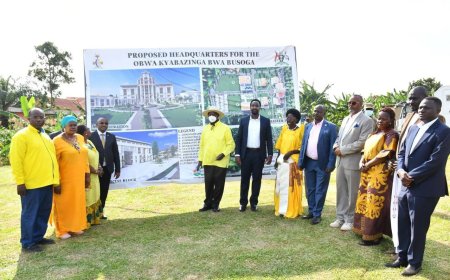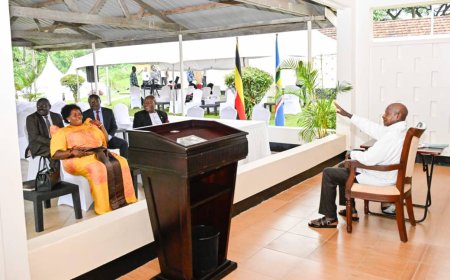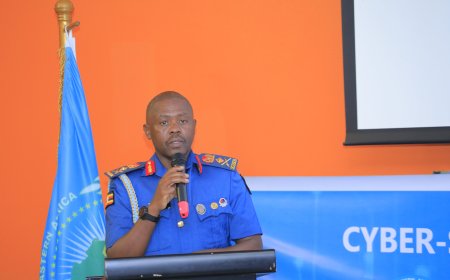Masabaland: Unity, Harmony, and Smart Work as the Cornerstone of Socio-Economic Development and Inclusive Growth
Since the golden days of leaders like the late James Wapakhabulo and Wanjusi Wasieba, the Bamasaba have seen a steady erosion of political influence. Despite our region’s size and contribution to Uganda’s development, we remain grossly underrepresented in key government institutions.
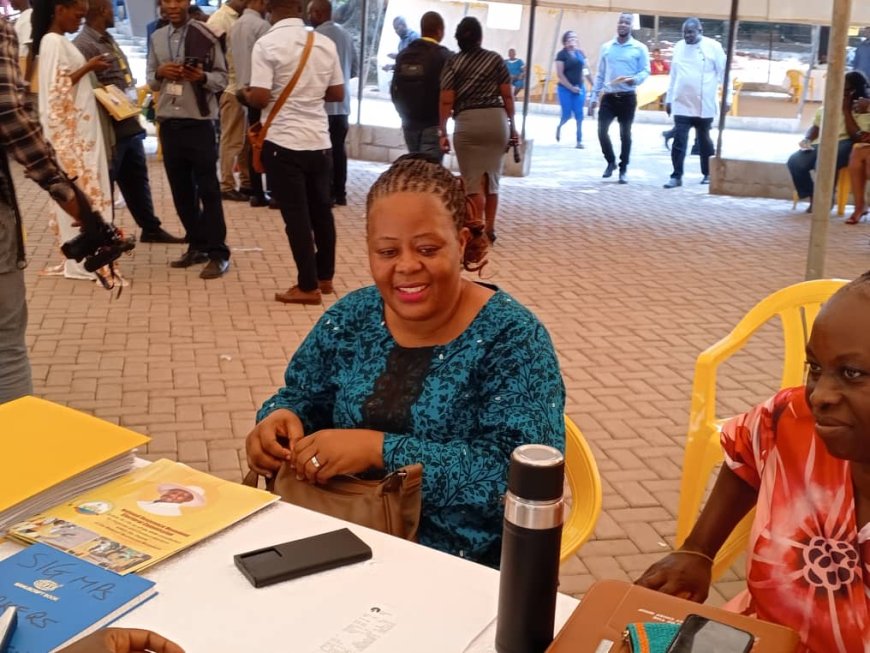
By Isaac Kitutu, Advocate for Unity and Inclusive Development
Introduction: The Call of a Generation
The future of Masabaland lies in our hands. As a people of rich cultural heritage, a proud history of leadership, and a strategic geographical positioning in Uganda's eastern region, the Bamasaba are poised for transformation—if we can align around unity, smart work, and visionary planning.
Fragmentation, marginalization, and disjointed efforts have long undermined the region’s socio-political standing and economic potential. Now is the time to rise—with one voice, one purpose, and one roadmap—to reclaim our place in the national narrative.
1. The Power of Unity: A Call for a Collective Voice
For too long, Masabaland has suffered the consequences of political fragmentation and social disunity. Despite our contributions to Uganda’s liberation and nation-building, we remain underrepresented in key national decision-making spaces.
Contrast this with our neighbors, the Ateker communities, who have shown the power of unity in action. During the recent bilateral agreements between President Yoweri Museveni and Kenyan President William Ruto, the Ateker people secured the appointment of a Special Envoy to oversee regional interests. That victory was borne not of chance but of coordinated strategy.
Masabaland must emulate such unity. Our voice must become one. Our demands must be synchronized. Our leadership must come from a common platform. This is a defining moment for collective consciousness—because disunity is no longer an option.
2. Equity in Government Representation and Appointments
Since the golden days of leaders like the late James Wapakhabulo and Wanjusi Wasieba, the Bamasaba have seen a steady erosion of political influence. Despite our region’s size and contribution to Uganda’s development, we remain grossly underrepresented in key government institutions.
It is time to restore balance and demand rightful inclusion. Our call includes:
At least three ministerial appointments from the region.
Senior appointments to Permanent Secretary positions, agency directors, ambassadors, and statutory boards.
Strategic ministries for Masabaland leaders such as Agriculture, Health, Trade, Environment, and ICT.
Promotions in security forces and elite civil service.
Increased state scholarships for courses aligned to our needs—especially in agriculture, ICT, environmental science, and technical education.
Equity must no longer be aspirational—it must be actionable.
3. Tourism: Unlocking the Sleeping Giant of the East
Masabaland is home to one of Uganda’s most breathtaking yet underdeveloped tourism frontiers. Mount Elgon, the world’s oldest volcanic caldera, remains vastly untapped for eco-tourism.
Key Attractions Include:
Expansive caves (some large enough to host conferences).
Hot springs, waterfalls, crater lakes.
Rich biodiversity, including over 300 bird species and unique flora.
The vibrant Imbalu cultural heritage of the Bamasaba people.
Strategic Interventions Must Include:
Construction of an Inspire World Tourism Center.
Establishment of cable cars, new tourism roads, and a regional airport.
Investment in eco-lodges, cultural centers, and visitor information hubs.
Aggressive marketing of Masabaland as a cultural and ecological wonder.
While Uganda’s tourism sector contributed 7.7% to GDP and employed over 667,000 people in 2023, Masabaland contributed less than 5% to that pie. This must change—urgently and deliberately.
4. Agriculture: Reviving the Economic Backbone
Agriculture remains the lifeblood of Masabaland, employing over 70% of our population. However, the potential remains largely unexploited due to outdated systems, low-value chains, and climate challenges.
Key Priorities Include:
Modernizing the Bugisu Cooperative Union (BCU) to regain global competitiveness.
Promoting bush coffee for its premium quality and conservation value.
Establishing agro-processing and value-addition hubs across the sub-region.
Climate-smart agriculture and reforestation in landslide-prone areas like Bududa, Bulambuli, and Manafwa.
Expanding irrigation systems to combat erratic rainfall patterns.
Despite Uganda exporting $900 million worth of coffee in 2023, Elgon farmers received a negligible portion of that wealth. This imbalance must be corrected—through empowerment, access to markets, and investment in rural infrastructure.
5. Education with Purpose: Innovation and Community Transformation
While the Bamasaba have many with advanced degrees, the question remains: What problems are our PhDs solving?
Uganda's education system has largely become a paper-producing machine, leaving behind practical skills and innovation. Countries like Israel prioritize vocational and problem-solving education—and their economy reflects it.
Proposed Mbale University must lead a paradigm shift by:
Championing problem-centered curricula.
Establishing disaster research centers for landslides and floods.
Building tech labs, startup incubators, and innovation hubs.
Focusing on agriculture, environmental engineering, and tourism.
Education should no longer be merely a ladder to a job—it must be a catalyst for solving community problems and spurring entrepreneurship.
6. The Diaspora and Investment: Catalysts for Regional Prosperity
The Bamasaba diaspora holds untapped wealth, expertise, and goodwill. It's time to galvanize this resource into a formal vehicle for regional development.
Key Investment Areas:
Agro-processing of coffee, bananas, and dairy.
Hospitality infrastructure such as lodges and tourism training schools.
ICT hubs and innovation parks to create digital jobs.
Strengthening SACCOs and local financial systems.
Let us initiate a Masabaland Development Pact, binding our diaspora, local leaders, and entrepreneurs into a unified, economically strategic force.
7. Political Engagement and the 2026 Roadmap
Masabaland can no longer remain politically reactive. As the 2026 general elections draw near, we must actively engage with presidential aspirants—not as cheerleaders, but as negotiators.
We must demand:
Signed MOUs with all leading presidential candidates.
Commitments to infrastructure, education, tourism, and security.
Post-election follow-through mechanisms for policy implementation.
We have the numbers. We have the brains. What remains is the political will to negotiate as a bloc, not as scattered constituencies.
The Time Is Now
Our ancestors dreamed of a thriving Masabaland. That dream must now be fulfilled—not through charity but through justice, equity, and intentional planning. Let this be the generation that:
Speaks with one voice.
Demands its fair share.
Transforms the region from the grassroots.
Masabaland is not too small to matter. And we shall no longer be too quiet to be heard.
Suggested Ministerial Appointments
In the spirit of inclusive governance and transformation, the following leaders are recommended for key ministerial roles:
Hon. Miriam Mukhaye Wagisi
Ministry of Labour, Gender, or Health – A respected voice in grassroots health, social justice, and women empowerment.
Hon. Wasunguyi Kamoti
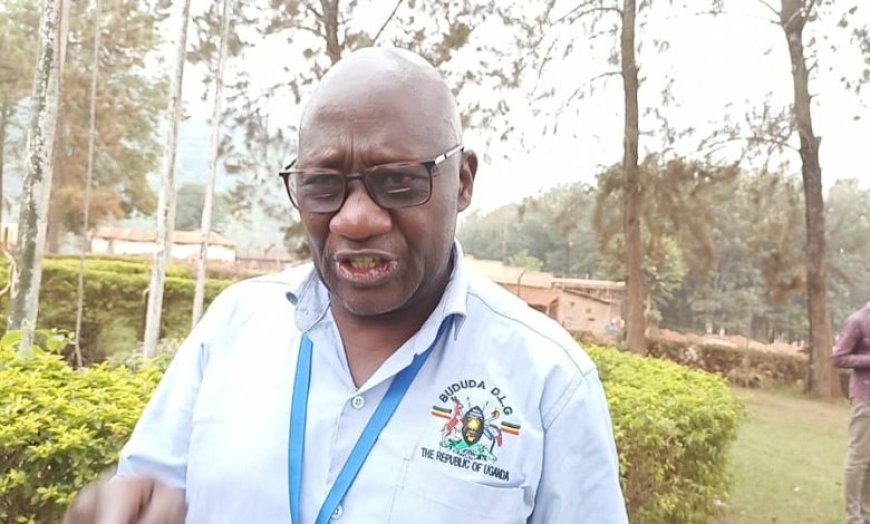
Ministry of Tourism – Visionary leader and longtime chairperson of Bududa District, championing local development and tourism.
Dr. Paul Mwambu Ministry of Agriculture – Current Prime Minister Bugisu Kingdom, with deep technical expertise in agriculture and public administration.
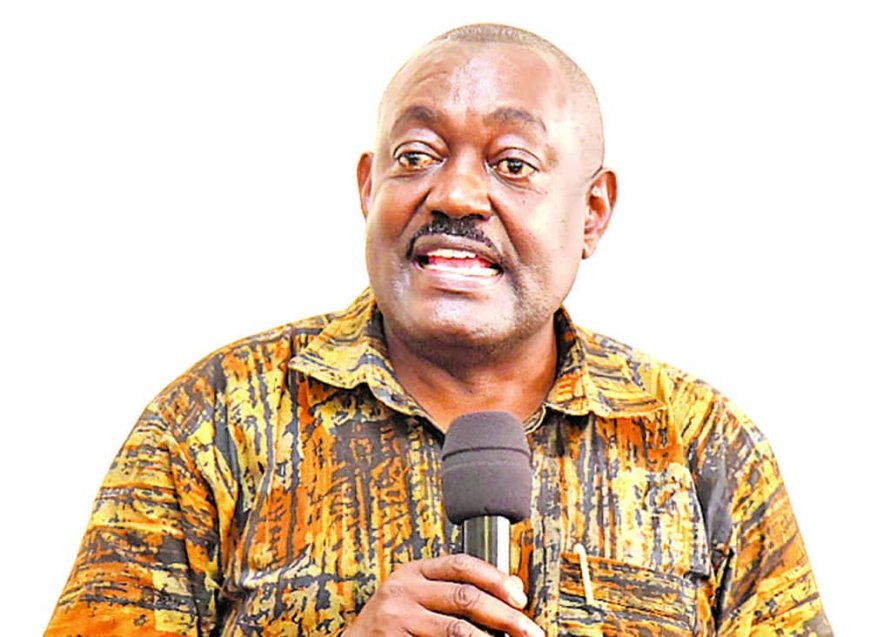
These individuals represent a new era of scandal-free, competent, and community-driven leadership.
For Masabaland. For Uganda. For the Future.
